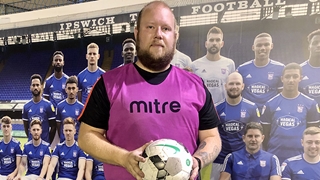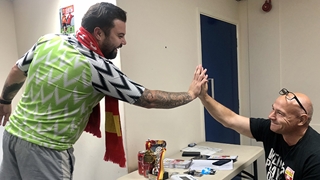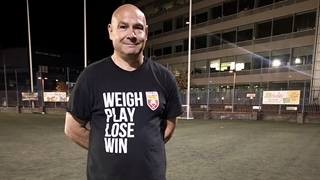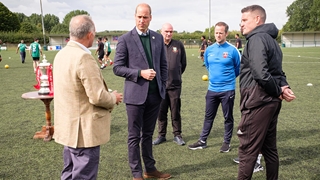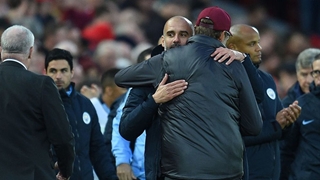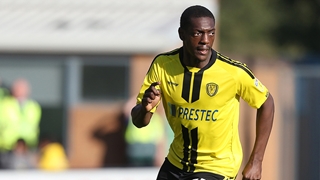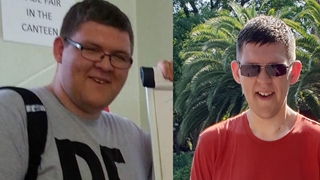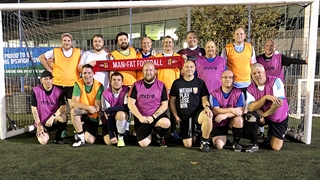
MAN v FAT is an FA-endorsed initiative where the biggest loser is the winner. The aim is to use football as a tool for weight loss, thus improving both physical and mental health.
“Teams play a 30-minute game every week,” says founder Andrew Shanahan.
“They are supported with resources such as behaviour-change tools and peer support. Uniquely, the league position is decided not just by the points won on the pitch, but by the pounds lost off it. Players score bonus goals for weight loss and this is added to the match scores to give a new league table.”
Although losing weight might be what originally drew the majority of players to MAN v FAT, many use the safe space for football to improve their mental fitness, too.
Truck driver Sean Hawes, who has been as heavy as 24 stone, suffered deteriorating mental health after breaking his leg in 2008. It resulted in suicidal thoughts in June this year. MAN v FAT has given him a support structure in which to talk about his feelings and thus improve his mental health at the same time as his physical health.
“Man v Fat is kind of like therapy for me,” says the 32-year-old Ipswich fan, whose team is OB City.
“I played a lot of football before my leg break. When I stopped I put on a ton of weight. I knew I had to do something about it because I got breathless very quickly in the garden when trying to play with my two kids.
“I signed up for MAN v FAT to shed some pounds and I am now down to 20 stone, but, just as importantly, being here has taken a huge weight off my mind. I suffer from depression and anxiety and football gives me something else to focus on to keep the dark thoughts away.
“I don’t feel alone now. You have people here of mixed ability, sizes and ages. They all have their own battles and it’s reassuring to know I'm not the only one who is going through depression and anxiety.
“I had a mental breakdown four months ago, and part of the reason I think it happened is because I bottled up my feelings for so long. I was on a delivery one day and things just got on top of me. I snapped. The easiest way to describe it is you get a blank expression on your face and are in a weird daze.
“I didn’t know what was going on or where I was. It was pretty scary. Imagine driving a 44-tonne truck and having no idea what you are doing. I just had dark thoughts. I didn’t want to be on this earth and thought about crashing my lorry into a car or tree.
“Looking back now, I now realise the consequences of doing so wouldn’t have just affected me and my family. I could've killed someone else. It’s like having a pebble and chucking it into a pond, the ripples would keep going. It took me a while to admit that I had a problem and the best advice I can give anyone who is in a similar position is don’t be afraid to talk about it.”
Thursday 10 October marks World Mental Health Day, and this season we – in partnership with Royal Foundation-backed mental health charity Heads Together – have launched our biggest ever mental health campaign. Heads Up will run throughout the 2019-20 season, ending at the Emirates FA Cup Final next May.
As well as promoting open dialogue around a wide range of mental health issues, it will provide not only players and staff but the entire football community with tools to improve their mental fitness.
"A lot of the guys here in Ipswich are fighting a battle between both their hips and ears,” says crane driver Monty Freeman, who plays for Game of Stones.
“Both my parents have died quite recently, so I have suffered from mental illness and getting fitter physically has really improved my mental health.
“I think the campaign will teach men that talking about their feelings isn’t a taboo subject. It was also important to hear Danny Rose speak about his battle with depression because that shows guys like me that the disease doesn’t discriminate.
“On the weight loss side, footballers don’t tend to be obese, but retired ones sometimes develop weight issues. I loved watching Harry’s Full English on television recently. The show was about a bunch of ex-players who had to lose some weight to play a game against Germany. Neil Ruddock was amazing. He has suffered mentally and physically and watching him shed some pounds was so inspiring.”
MAN v FAT now has around 4500 players in 68 leagues across England. One of the most popular leagues takes place on the Astroturf pitch right outside Ipswich Town’s Portman Road where, ahead of World Obesity Day on October 11, trials for Man v Fat’s eighth season are underway.
“We're growing really fast,” says MAN v FAT’s head of marketing Matt Hudson. “To be eligible you need a minimum body mass index (BMI) of 27.5 per cent for men of Asian descent and 30 for everyone else.
“We use football as a vehicle to help players stick to their weight-loss programme. It's a very inclusive environment and I think that’s why The FA support us. So if you love football and are considering losing weight on or around World Obesity Day why not give MAN v FAT a go? You’ll see proven results and wonder why you didn’t join earlier.”
MAN v FAT’s results are indeed nothing short of astonishing. 95 per cent of players lose weight across each 14-week season with two out of three hitting their five per cent body-weight-reduction target.
Players are provided with coaching on the field and nutritional resources off it. As importantly, they receive peer support.
“I joined MAN v FAT with my brother six months ago and have already lost over a stone,” says Freeman. “I can now up my exercise regime because I'm visibly more mobile.
“I've always carried a fair bit of timber since I was a teenager, but for the past 18 months I've been more aware of it. Driving a crane involves a lot of sitting around, so football's what keeps me active.
“Last season we won the football-only league and finished fifth in the combined pitch-and-weight-loss league. We have pretty much the same squad this season, but we're going to change the team name to Olympique Mayonnaise.”
The defending champions in Ipswich are KFC Wimbledon, who won eight of their 14 games to narrowly pip Real Madrass and Cholesterol Palace to the title last campaign. All matches have a familiar football feel, but the pre-match routine involves a special weigh-in instead of the traditional team-talk.
“Players weigh in and if they lose weight on any given week they get half a goal,” says 54-year-old assistant coach Mark Storey, who has gone from 17 to 14 stone in two years and recently completed his first triathlon.
“If they lose weight three weeks in a row then they get a ‘hat-trick’ and we award that team a bonus goal.
“And once players lose five or ten percent of their entire body weight they get three extra goals, which is massive. What it means is a team of weight losers will always beat a team of good footballers. I have seen teams lose 5-0 on the field and still win games and that’s the beauty of the concept.”
As the name suggests, MAN v FAT has always focused on men because 67 per cent in England are either obese or overweight.
But according to the National Health Service, 62 per cent of women also suffer from weight problems. As a result, the initiative is open to catering for both sexes in the future.
“We've all seen the growth of women’s football, so are obviously considering Women v Fat and any other variants of the initiative that make us as inclusive as possible,” says Hudson. “Football is the most popular sport in the world and we want to offer it to as many people as possible to help improve their health.”
Find out more about our Heads Up campaign – in partnership with Heads Together.
Find out more information about MAN v FAT, and find your nearest league.


